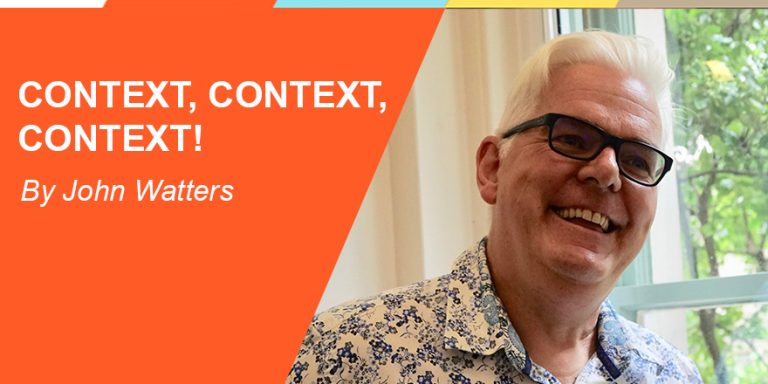Putting the challenge into context
A colleague of mine was chatting about the Longitude Prize that was launched on the BBC last week. The competition is to commemorate 300 years since the first challenge was set (and consequently won by gruff Yorkshire clockmaker John Harrison with his stable marine chronometers) and the prize of £10 million will be awarded to the person/s who can find a solution to one of six of the world’s greatest challenges.And this got me thinking about some of the challenges our clients face.
Challenges where you know something qualitatively different is required and you need to look at them through different lenses. Advice incidentally which is useful for the Longitude Prize teams too. How do you proceed? What route do you take?
Now there are many well-travelled, safe roads: ‘safe’ in the sense lots of people still go that way and the promise is fast journey times and easy driving to your destination. If you’re observant though, as you speed along these roads, you see lots of rubbish on the hard shoulder: abandoned training programmes, proposal papers with benefits statements that were never realised. Part of me would love to believe that it’s so simple and I just need to follow the route map. Addressing our big challenges however, despite what we’ve been told, is a much messier affair.
If we think for a moment about the medieval explorers who ventured on the seas before Harrison’s chronometer was invented. Explorers such as Magellan. His big challenge was a new route to the Spice Islands. He faced high levels of uncertainty about the route, and the maps were marked, ‘Here Be Dragons’, to show the edges of known territory where safe routes ended. The dragon element is important: our fears can either incapacitate us or lead us to take what seems like the safe option. In our big challenges, whilst we can draw on the experience and stories of pioneers, we need to plot our own journey based on our particular context; trust our courage and intuition, and the ability of our crew.
So how do we prepare?
In navigating uncharted waters we need three essential lenses to see more, to register what is going on and therefore to be more effective and purposeful. These three lenses are fundamental to making progress; they are rarely combined.

Systemic – it’s not just personal. There are structures and forces which impact your context, your behaviour and others. If you want to make progress on your big challenge you need to spot those patterns and their impact and learn how to influence them. When we are caught in the drama of organisational and community life it often feels intensely personal and situation-specific. And yet there are predictable patterns that teams, communities and organisations blindly and regularly fall into which creates ‘stuckness’ and unproductive conflict. Seeing the systemic nature of our situation creates the possibility for building or renewing partnership through productive conversations, which are largely free of blame, encourages people to take personal and collective responsibility for shifting the pattern and opens up strategies which are higher leverage.
Cultural – it’s not just personal. We are social creatures and our identity and behaviour is shaped by the contexts in which we live and work. Many training and change programmes seem premised on the view that the transformation of individuals equates to collective change through a cumulative effect. In the context of training, people already have many skills, knowledge and qualities which they currently can’t use at work; working with a cultural lens we create conditions which make it easier for people to use what they already have and know. Evolve the culture and watch how many so called problematic people “straighten up and fly right”, without any evident personal transformation.
Individual – it is also personal. One of the aspects that defines us as humans is our (potential) ability to choose our response whatever the conditions or structures. We are blind to a lot of what is going on because for most of us, our ability to pay attention without judgement, is very limited. The psychiatrist RD Laing said “the range of what we think and do is limited by what we fail to notice.” This limited ability to notice what is happening or to distinguish between different domains of what is happening– within me, within the group, within the wider cultural field, across the broader system – stunts our learning, individually and collectively, and therefore our ability to bring anything new into the world. We just get more of the same. Mastery in addressing our big challenges involves being able to see which of these forces are at play in any situation and how to act wisely, compassionately and with insight. In the early stages we need to create clarity about the different lenses – we have to differentiate the elements to some extent before we can integrate them.
Your challenge, unlike the Longitude Prize or Magellan’s, is not to discover new solutions to world issues or routes to far-flung lands, but to discover more sustainable, resilient, innovative and creative ways of leading and organising. We invite you to join us and discover how to gain a whole system view of your organisation in our Leading beyond Boundaries one-day workshop on 2nd July. More details can be found here . Beware though – Here Be Dragons!




Leave a Reply